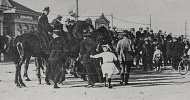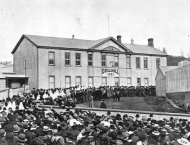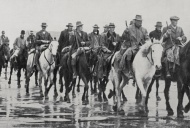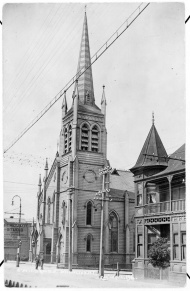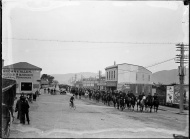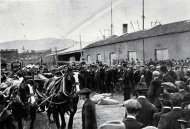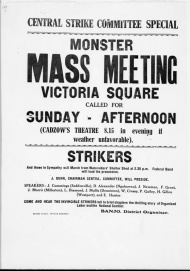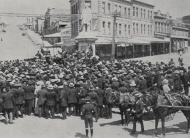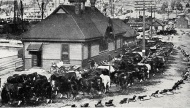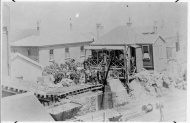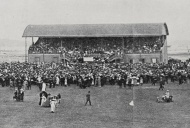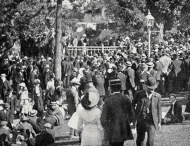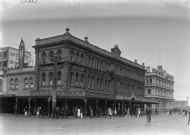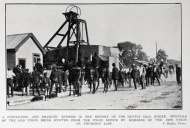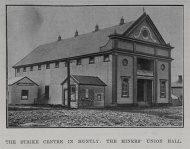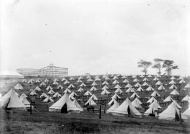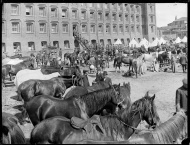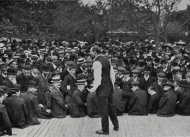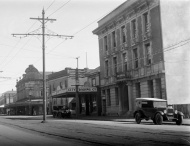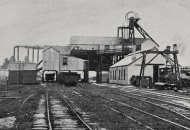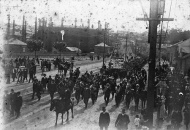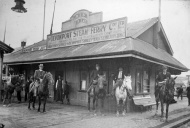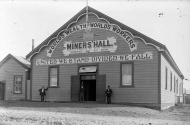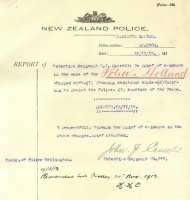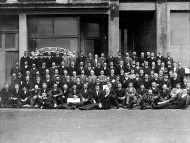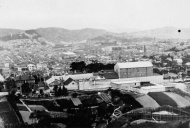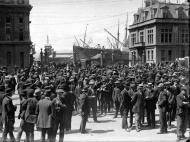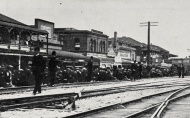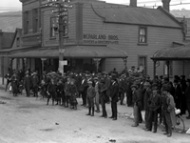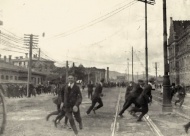Events In History
-
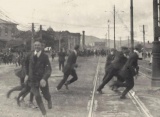 5 November 1913Battle of Featherston Street
5 November 1913Battle of Featherston StreetThe ‘Battle of Featherston Street’, in downtown Wellington, saw some of the most violent street fighting of the 1913 Great Strike. Read more...
-
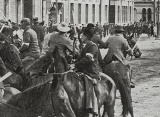 24 October 1913Violence flares on Wellington wharves
24 October 1913Violence flares on Wellington wharvesViolent clashes between unionised waterside workers and non-union labour erupted two days after Wellington’s ‘wharfies’ held a stopwork meeting in support of striking shipwrights. Read more...
Articles
The 1913 Great Strike
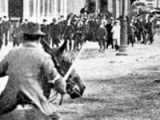
The Great Strike of 1913 was in fact a series of strikes between mid-October 1913 and mid-January 1914. It was one of New Zealand’s most violent and disruptive industrial confrontations.
-
Page 2 – Class war comes to the workers' paradise 1890-1913
History of New Zealand's employment relations, 1890-1913.
-
Page 3 – Outbreak of the 1913 strike
The 1913 Great Strike was sparked off by two relatively small strikes.
-
Page 4 – The 1913 strike in Wellington
Because the strike threatened their livelihoods, rural men were keen to volunteer as special constables.
-
Page 5 – The 1913 strike in Auckland
Watersiders in Auckland began to strike in support of those in Huntly and Wellington.
-
Page 6 – The 1913 strike in the South Island
Although the 1913 strike had its biggest impact on Auckland and Wellington, the South Island's cities and mining towns were also affected.
-
Page 7 – The defeat of the 1913 strike
The seizure of the wharves in Wellington and Auckland greatly reduced the strikers’ industrial power. Similar takeovers by ‘scab’ arbitration unions soon happened in other
-
Page 9 – Further information
Recommended books and websites relating to the Great Strike of 1913
A sense of place
Merchant marine
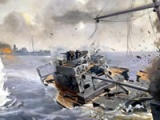
On 3 September New Zealand honours Merchant Navy Day. Here we explore the little-known but vital role played by the merchant marine during the First World War, when these civilian seafarers often found themselves in the front line of the war at sea.
- Page 8 - Politics, patriotism and protestAlthough New Zealand seafarers served in many hostile theatres, some questioned the politics of the
Biographies
-
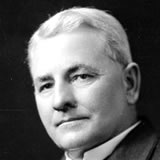 Holland, Henry Edmund
Holland, Henry Edmund
Harry Holland was an Australian-born radical who led the Labour Party from 1919 until his death in 1933. Holland's socialism was described as 'emotional, not intellectual'. He believed socialism would overcome society's problems.
Read more... -
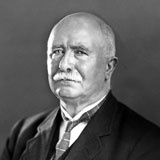 Massey, William Ferguson
Massey, William Ferguson
William Massey is our second-longest serving leader. Although he was reviled by the left for crushing workers in 1913 with his ‘Massey’s Cossacks’ (strike-breakers), his legacy is being re-evaluated.
Read more...
Related keywords
- hamilton
- te awamutu
- feilding
- auckland city
- addington
- christchurch
- wellington city
- petone
- dunedin
- shipping
- protest
- westport
- lyttelton
- denniston
- coal mining
- nelson city
- ponsonby
- trade unions
- huntly
- auckland domain
- workers rights
- basin reserve
- taupiri
- fred evans
- devonport
- runanga
- harry holland
- newspapers
- nightcaps
- merchant marine
- WW1
- conscription
- greymouth
- radio broadcasts
- northland
- demonstrations
- maps
- buller
- brunner
- blackball
- labour party
- red feds
- waihi
- strikes
- william massey
- prime ministers
- socialism
- great depression
- reform party
-
Main image: Special constables in Hamilton
Special constables raised in Waikato were sent north to Auckland.


